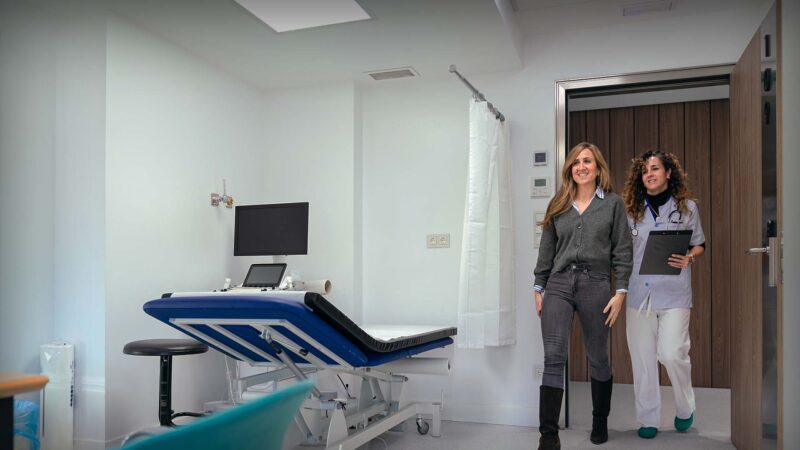Beyond engagement: consumers and communities as agents of health care change and improvement AUSTRALIAN PRIMARY HEALTHCARE INSIGHTS AND INNOVATION VODCAST SERIES. Full Feature Vodcast 3
A Joint Prestantia Health and AUDIENCED Production, with
- Dr Coralie Wales OAM, Honorary Community Fellow, Western Sydney University
- Dr Paresh Dawda, GP Lead and Adviser, Founder Prestantia Health
- Dr Tara Kiran, Family Physician and Scientist, St Michaels Hospital, Unity Health Toronto and Fidani Chair in Improvement and Innovation, University of Toronto
FACILITATOR
Leanne Wells, Associate Consultant, Prestantia Health
Australian Health Journal Segment
Filmed Online | April 2025
In a recently convened online conversation, expert and community leaders in primary health care, were invited to participate in an international panel in for the third vodcast in the Australian Primary Health Care Insights and Innovation Series.
The series is a thought leadership initiative which features vodcasts and accompanying blogs covering predominantly primary care related topics of contemporary or emerging interest to health care policy makers, clinicians, researchers, improvers, commissioning organisations and consumers. The series is designed to stimulate discussion and reflection about the learnings and experience of health system experts from across Australia and around the world.
The first vodcast in the Australian Primary Health Care Insights and Innovation Series highlighted that health system leadership must include consumer and community leadership. Harnessed and supported in the right way, consumer insights and preferences improve policies, services, experiences and outcomes.
Policymakers, health administrators and clinicians must learn and embrace new ways to harness the transformative role consumers, community members and carers can play. Conversely, consumers and communities need support, capability and capacity to engage as equals in policy, research, program and service design. This is necessary if are to be less technocratic and realise the vision where all members of society can live the best life possible.
As developed countries grapple with sustainability and how best to assure and strengthen primary health care, it is important that our system leaders and those who translate policy into services build trust by developing and demonstrating that they have a firm grasp on consumer and community expectations and preferences.
Our system already features many ways to support consumer and community involvement. There are formal processes, including Royal Commissions, parliamentary inquiries, and government-led consultations. The Australian Commission for Safety and Quality in Healthcare mandates a partnering with consumer standard against which all hospitals are accredited. Primary Health Networks (PHNs) are required to have a community advisory committee as part of their governance structures, and it is commonplace for local hospital networks to have some form of consumer engagement forum.
To further elevate and underscore the importance of consumer and community involvement, the World Health Organisation (WHO) has produced a social participation declaration. It too recognises that lived experience and knowledge shapes better policy, more inclusive health systems, improved services, experiences and outcomes. It also recognises that while people are increasingly being engaged as partners in health systems, recognition and influence is variable. Most importantly, the resolution makes social participation a core function within health systems, committing countries to strengthening, systematising and sustaining social participation.
Source: Excerpts from Prestantia Health blog post written by Leanne Wells
You Might also like
-
Delivering anaesthetic services to countries where surgical services can’t be provided
Dr Wendy Falloon is an Anaesthetist of over 30 years experience and a Fellow of Australian and New Zealand College of Anaesthetists (ANZCA). She studied medicine at the University of Tasmania, and worked in Hobart, Sydney and the Uk while completing her specialist qualifications. Her primary professional focus has always been to deliver the best possible experience of anaesthesia to each and every patient, and for them to know that she sees and values them, and their stories.
Having been born in Africa, she realised even as a child that health and wealth were largely a product of where people happen to be born. This sowed the seed of her ongoing desire to be of help to others in less fortunate circumstances, ultimately leading to her volunteer work with the Mercy Ships charity. This is one of the most fulfilling aspects of her career, and she has volunteered in Africa with Mercy Ships 8 times since 2014.
-
Spinal implant technology eyes global opportunity
Adelaide, South Australia wants to let the secret out, and be known as hub for medical devices, pharmaceuticals, biotechnology, and digital health. It boasts world-class research institutions, such as the University of Adelaide and SAHMRI, fostering innovation and collaboration. The city’s supportive government policies provide incentives, grants, and streamlined regulations for businesses. Adelaide’s skilled workforce, renowned for its expertise in health sciences, offers a talent pool to drive industry growth. Additionally, the city’s strategic location, advanced infrastructure, and strong healthcare ecosystem make it an ideal base for development, manufacturing, and market access, attracting companies in these sectors.
-
Changes in MBS bulk billing incentives address GP capacity in women’s health
Dr. Sneha Wadhwani, a General Practitioner in Bondi, and Conjoint Lecturer at UNSW School of Medicine, is actively involved in enhancing women’s health services across Australia. As the Co-founder and Clinical Director of Evoca Women’s Health, she highlights the significant improvements in funding for women’s health, particularly with the new MBS bulk billing incentives, in new codes, that commenced on November 1, 2025.



